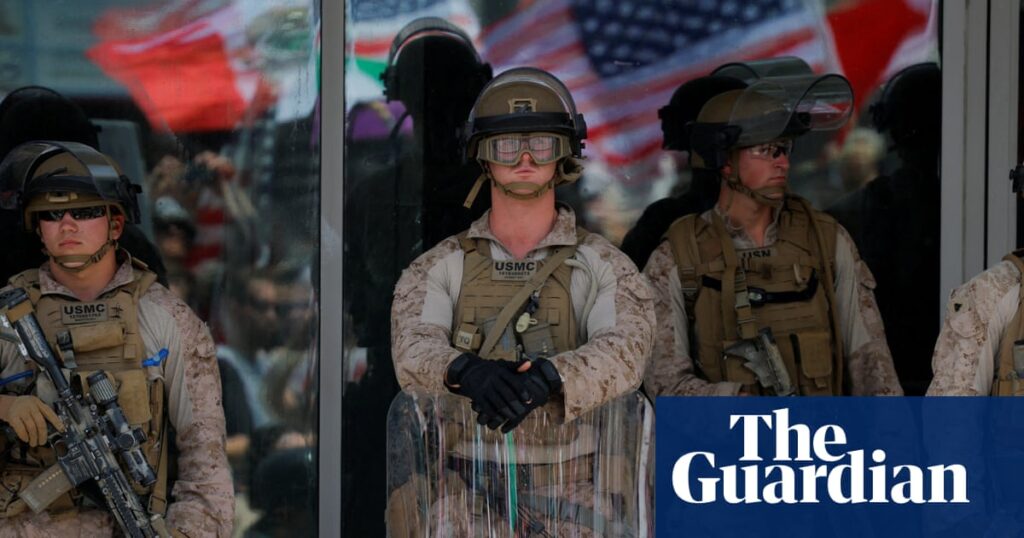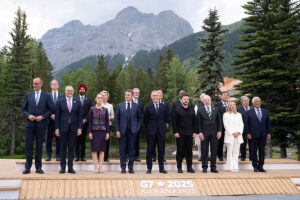
Shortly before last November’s presidential election, Donald Trump hinted at deploying the military on U.S. soil to handle what he termed “the enemy within.” In a Fox News interview, he described these enemies as “very bad people” and “radical left lunatics,” suggesting that the National Guard or military could be used to address such threats. This rhetoric has now materialized in Los Angeles, where thousands of National Guard troops and U.S. Marines have been deployed.
The deployment, which coincided with protests against the administration’s immigration policies, has stirred controversy. While the troops have largely maintained a low profile, their presence has unsettled California’s political leaders and national Democratic figures. The deployment has also drawn criticism from retired military officials, who argue that the military’s role is to defend against foreign threats, not to police American streets.
Military Deployment and Political Tensions
The presence of troops in Los Angeles has sparked a lawsuit from a group of retired four-star generals and admirals. They argue that the deployment endangers both service members and civilians and violates constitutional limits on government power. Among the plaintiffs are a former secretary of the army, a former secretary of the navy, and Michael Hayden, a retired air force general.
Some experts see a connection between Trump’s domestic military actions and his foreign policy moves, particularly in the Middle East. Julia Ioffe, a national security expert, noted the potential for authoritarian aggression to extend beyond borders. The administration has vowed to keep troops in place for at least 60 days, according to Defense Secretary Pete Hegseth, to deter what he described as “rioters, looters, and thugs.”
Historical Context and Legal Implications
Trump’s decision to deploy the military in Los Angeles without invoking the Insurrection Act is notable. Instead, he used a rarely exercised power to protect federal property and personnel. This power was last used by Lyndon Johnson during the civil rights demonstrations in Alabama in 1965 and by Richard Nixon during a postal strike in 1970. Experts suggest this approach allows for military presence without full-scale escalation.
Chris Mirasola, a national security expert, expressed surprise at Trump’s decision not to invoke the Insurrection Act, speculating that it might have been a strategic move to maintain flexibility. The military’s reluctance to engage in domestic law enforcement is rooted in its apolitical stance, a sentiment echoed by advocacy groups for service members.
Local and National Reactions
California’s lawsuit against the federal government over the military deployment initially succeeded in court but was later overturned on appeal. The state argues that the National Guard’s involvement in non-traditional activities blurs the line between military and civilian roles, a trend seen in other states as well.
Supporters of the lawsuit contend that the military should not be involved in domestic law enforcement, especially for partisan purposes. Beau Tremitiere, a lawyer with Protect Democracy, emphasized the risks of politicized military deployments, warning that they threaten the integrity of U.S. democracy.
Future Implications and Analysis
The deployment of troops in Los Angeles has raised questions about the future of civil-military relations in the United States. As the situation unfolds, the potential for escalation remains, with experts cautioning against the risks of mistakes in such volatile circumstances.
As the debate continues, the role of the military in domestic affairs will likely remain a contentious issue, with implications for both national security and democratic principles. The events in Los Angeles have brought these concerns to the forefront, prompting a national conversation about the appropriate use of military power within U.S. borders.






